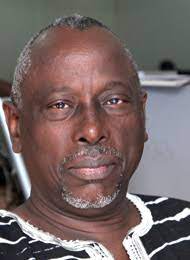Mankind has always been fascinated by ideas, great and small, and often debated them. As in every debate, agreement is not guaranteed, nor is it always desired. Indeed the power of ideas lies in their being contentious and even subversive. The more profound ones have changed the world.

Mankind has always been fascinated by ideas, great and small, and often debated them. As in every debate, agreement is not guaranteed, nor is it always desired. Indeed the power of ideas lies in their being contentious and even subversive. The more profound ones have changed the world. But even the ordinary have had their impact.
In the last few decades, great ideas seem to have been absent. Some people were beginning to think that we were losing that quality that had driven societies forward. And with this apparent shortage of ideas, the culture and quality of debate was slowly dying.
Of course, debate does exist, but it is constrained by an apparent preference for brevity in the modern world. And so debate on complex issues is carried out within the confines of 140 characters.
Perhaps this is the reaction of a generation that grew up during a time when great and contending ideas dominated all discussion and were not constrained by a fast-paced lifestyle.
However, there is no cause for despair that humankind is losing its capacity for conceiving and discussing profound ideas. Two events in Kigali this month lifted some of this worry.
The first was the inaugural Pan-African National Congress in Kigali on August 8 during which the Pan-African Movement-Rwanda (PAM-Rwanda) was launched. This was part of the revival of the movement across the continent.
As we noted then, Pan-Africanism as an idea and movement was the expression of certain common aspects so necessary for the advancement of Africans. First, it created and expressed consciousness of a common identity among Africans.
It was also a rejection of injustice and affirmation of equal dignity with the rest of humanity. And in the context of colonialism, it became a vehicle for the demand for freedom and the right to make choices about the direction to take.
Finally, the movement was recognition that unity and solidarity between Africans is key to their empowerment and progress.
The second was a symposium in Kigali on August 21 organised by the Meles Zenawi Foundation to examine the meaning and impact of a democratic developmental state. A link can be discerned between the idea of Pan-Africanism and that of a developmental state.
The earlier movement dealt with issues of freedom, identity and solidarity. The subject of the symposium carried on from there and sought to address issues of governance and alternative paths to development. Both have unity as a common factor.
At the symposium on the developmental state, it was refreshing to see ideas debated with passion, conviction and reason, but without recourse to dogmatic or doctrinaire lines.
The arguments were thought out and were mainly based on experience of tested practice from within the continent and even outside, and with results to show.
Another refreshing quality of the debate was that this was not a purely intellectual discussion of ideas for their own sake. It was more about application of ideas to effect change.
In a sense that is where today’s most effective leaders are different from those of an earlier period. They are more pragmatic and practical, concerned more with results and not simply concepts. They are not afraid to challenge or overturn conventional wisdom or orthodoxy as long as the outcome is a better quality of life for their people.
Subversion has always been behind most changes in history. The world has always been changed by ideas and individuals who originate or espouse those ideas. Usually those that make change happen are the subversive ones, those that call into question existing concepts and practices or the generally accepted way of doing things.
Take democracy, for instance, about which we are lectured daily. Bourgeois democracy that has gone through many phases and names and been appropriated by the west, rose as a subversive movement against the feudal order.
Independence and liberation movements, built on the idea of equality and the right to self-determination, subverted the colonial state to earn independence.
Even in religion, Christianity was founded by a man accused of being subversive. His disciples faced the same charges. Today, more than one billion followers owe their faith various acts of subversion more than two thousand years ago.
In all these challenges to the existing order, a degree of conviction, boldness and doggedness was required. It is perhaps for this reason that President Kagame challenged African intellectuals and think tanks to be fearless in articulating our stories and our aspirations.
Returning to the developmental state, it challenges the assumptions of democracy and development we have been fed on for a long time in which the market rules and the state is absent.
As many participants argued, the developmental state seeks to reclaim the role of the state in the management and progress of society.
There is an alternative to progress and people have the right to choose what works for them. Ethiopia and Rwanda show that the choice of that alternative produces the desired results. They also show that ideas and solutions are not anyone’s monopoly.
Subversive ideas work. Where would we be without them?
jorwagatare@yahoo.co.uk


